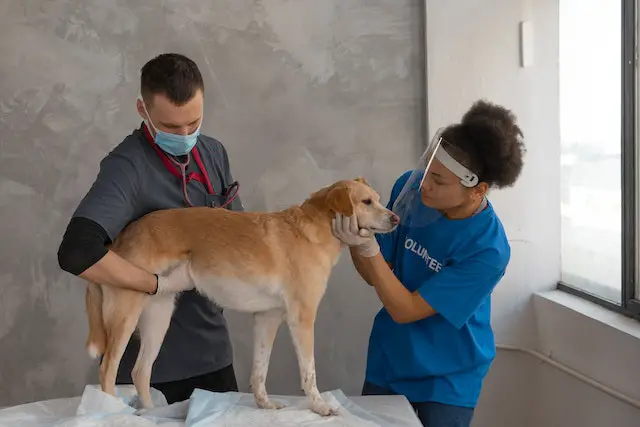Committing to animal health is not merely a personal decision, but a responsibility that has far-reaching consequences. As custodians of our planet, we have a moral duty to ensure the well-being of all creatures, great and small. This obligation entails a commitment to understanding animal health, recognizing signs of distress, and taking proactive measures to prevent and treat disease. The repercussions of this commitment extend beyond animal welfare, influencing our ecosystems, public health, and even the economy. Therefore, embarking on this path requires not only compassion but also knowledge and preparedness.

Education
Strive to learn about various animal species, their biological functions, and the common health issues they face. This knowledge can empower you to observe any changes in an animal’s behavior or appearance that may signal a health problem. To obtain this understanding, you can enroll in courses or workshops, attend seminars and lectures, and read reputable sources on the subject. Additionally, consider consulting experts such as veterinarians or animal behaviorists for guidance and advice. You can always find out more about animal-related careers, volunteer opportunities, and rescue organizations that may offer hands-on learning experiences. Education is the foundation of your commitment to animal health, and it can set you on a path of lifelong learning.
Promote Preventative Care
Vaccinations, regular check-ups, a balanced diet, and regular exercise are vital to an animal’s health. Promoting these behaviors in your community can help prevent diseases and enhance the overall health of animals. Share your knowledge with others, urge them to take their pets for check-ups, and advocate for regular vaccinations. These steps can spare animals from suffering in the long run and reduce the risk of epidemics that could spread to humans. For instance, rabies vaccinations in domestic animals have significantly reduced the number of human deaths caused by rabies. By promoting preventative care, you can make a significant difference not only to animal health but also to human health.
Support Animal Welfare Organizations
These organizations work tirelessly to protect animals and improve their health conditions. Your support can take many forms, including monetary donations, volunteering your time, or advocating for your cause. These organizations work on various issues, such as animal rescue and rehabilitation, promoting ethical treatment of animals, and addressing environmental threats to wildlife. By supporting them, you can contribute to the welfare of animals in your community and beyond. You can also join these organizations’ efforts by taking part in their events or campaigns and spreading awareness through social media or other platforms.
Responsible Ownership
If you own pets, ensure they have a safe environment, regular vet check-ups, and plenty of love and attention. Abiding by local laws regarding pet ownership is also essential. Spaying and neutering your pets can help control the animal population, reducing the strain on resources and minimizing the chances of animals ending up in shelters. Properly training your pets also promotes responsible ownership by keeping them from causing harm to themselves or others. By being a responsible pet owner, you demonstrate your commitment to animal health, setting an example for others in your community.

Advocacy
Raise awareness in your community about the importance of animal health. Encourage responsible pet ownership, support legislation that protects animals, and educate others about the impact of animal health on ecosystem balance and public health. You can also assist in organizing events or campaigns that promote animal health, such as adoption drives, spay and neuter clinics, or information sessions. By being an advocate for animal health, you can inspire others to become more involved and committed to this cause. Advocacy can also help bring about policy changes that benefit animals and their welfare.
Conservation Efforts
Support initiatives aimed at preserving wildlife and their habitats, as this directly impacts their health. Participate in local clean-ups, advocate for protected nature reserves, and stand against practices that endanger wildlife. Additionally, you can make environmentally conscious choices in your daily life to minimize your impact on the environment and promote a healthier ecosystem for animals. By conserving wildlife, you are not only protecting their health but also securing the future of our planet.
Making a difference through your commitment to animal health requires education, prevention, support, responsible ownership, advocacy, and conservation efforts. By incorporating these aspects into your life, you can make a positive impact on animal health and help create a more compassionate and sustainable world for all creatures. Remember, every small action counts, and together we can achieve great things for the well-being of animals. So let us continue to educate ourselves, promote preventative care, support animal welfare organizations, be responsible pet owners, advocate for animal health, and conserve wildlife. Our commitment to animal health is a powerful tool for creating positive change in our world, and we must utilize it to the best of our abilities.









